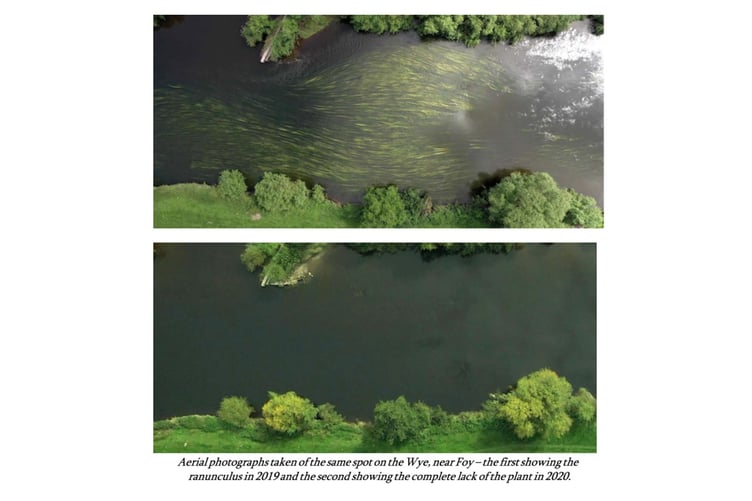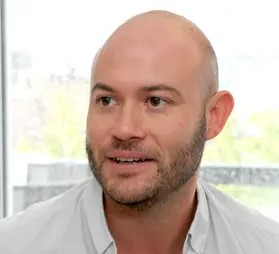Civil Action Update: Leigh Day Solicitors has sent a legal letter to the poultry companies its clients believe are responsible for the devastating pollution in the River Wye.
Lawyers representing hundreds of people and businesses affected by River Wye pollution have made their first legal move in the groundbreaking civil action.
The team at leading environmental law firm Leigh Day has sent a ‘letter before action’ (LBA) to the companies its clients believe are behind the damage allegedly caused by industrial-scale chicken production in the area.
The legal letter sets out details of the nuisance claim against Avara Foods, Freemans of Newent and Cargill PLC, and outlines the negative impact river pollution has had on people living and working in the Wye catchment area.

Residents and local companies are joining together to demand those allegedly responsible for the pollution clean up and restore the Wye. Last year the river was downgraded to “unfavourable – declining” by the government nature watchdog Natural England, and anti-pollution campaigners, such as River Action, have described the situation as a “state of emergency”.
Leigh Day clients, who are urging others to join the claim, are seeking a court order to stop the pollution and make alleged polluters clean up the Wye and other affected rivers in order to undo the damage they have allegedly caused. They are also seeking compensation for loss and damage allegedly suffered, whether through property value decline, impact on livelihoods or disruption to leisure and hobbies such as swimming, canoeing and fishing.
“
This is a chance for local people to hold to account those allegedly responsible for the degradation of the River Wye.
Oliver Holland, Partner, Leigh Day
Avara Foods, and its subsidiary Freemans of Newent, together run the largest poultry business in the Wye catchment area, controlling 120 intensive units.
The legal letter alleges that following a deal to supply Tesco in 2013, poultry numbers in the Wye catchment area increased from 13 million to 20 million in just seven years.
The rapid growth resulted in a significant increase in the volume of chicken manure,which is high in phosphorus levels, being produced in the Wye catchment area.
More manure than is needed is being spread on the land around the river, and clients allege that as a result, the phosphorus it contains is leaching into the river, causing intense algal blooms to form.
These blooms, and the bacteria which feed on them, prevent oxygen and sunlight from reaching the water below the surface of the river. The impact on many of the plants and wildlife for which the Wye was once famous has been devastating.
Invertebrate and swan numbers have reduced, and egg deposits and catch numbers of Atlantic salmon, which are particularly sensitive to oxygen levels, continue to decline alongside populations of other endangered species, such as white-clawed crayfish.
There has also been a 90 per cent reduction in the important aquatic plant ranunculus, a habitat for smaller fish and many invertebrates which provides the river with structure and acts as a filter bed.
Julian Nancarrow, from Lower Eaton, Herefordshire, says the loss of ranunculus is an indicator the river’s ecosystems are in mass decline.
“We live within 300m of the river, and when we moved here in 2017, there were ranunculae flowing at Bridge Sollars,” he said. “Now they are gone. We no longer take our grandchildren to paddle in the river as the riverbed is covered in a brown slime.
“We have lost a beautiful amenity.”
There is a real sense of urgency among local people, says Leigh Day partner Oliver Holland, who is leading the claim.

“Campaigners know how serious the situation is and it is only going to get worse,” he said. “By joining the claim, people are taking decisive steps to make sure this important river is saved, cleaned up and preserved for future generations.
“The claim has resonated with people, not just in the local area, but across the country, where the state of rivers is a common topic at the moment.”
Mr Holland added: “This is a chance for local people to hold to account those allegedly responsible for the degradation of the Wye.”
In the legal letter, Leigh Day clients are demanding compensation and injunctive relief for phosphorus, odour, noise and insect pollution, which they claim has had a “massive, negative impact” on people’s enjoyment of the Wye and businesses which depend on it.
The claim will allege private nuisance, public nuisance and a breach of section 73(6) of the Environmental Protection Act 1990, caused by the unlawful deposit of waste.
Mr Holland says the LBA is an important “last chance” for the companies to resolve the dispute before formal court proceedings begin.
“We hope that Avara, Freemans of Newent and Cargill will take this opportunity to engage constructively with the substance of the claim and work with us to avoid court proceedings being issued,” he said. “However, if they do not, our clients will be issuing court proceedings.”
Mr Holland added that if “a satisfactory response” is not received by August 20, 2024, preparations will begin to issue the legal claim in the High Court.
Leigh Day is bringing the claim on a no-win, no-fee basis, which means that those joining will not have to pay anything to the firm if they lose, and insurance is in place to cover the defendants’ costs. If the members of the community win their claim, they will pay a percentage of any compensation won in the case, plus VAT, but will not be charged for any fees out of pocket. There is no upfront fee to join the claim.





Comments
This article has no comments yet. Be the first to leave a comment.